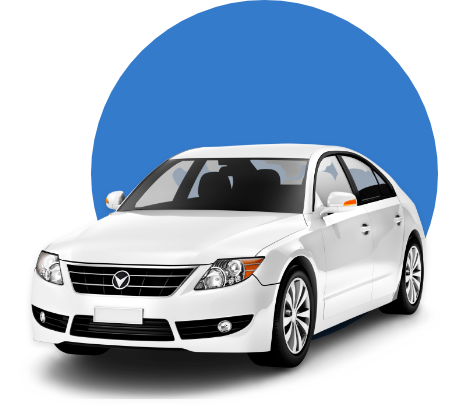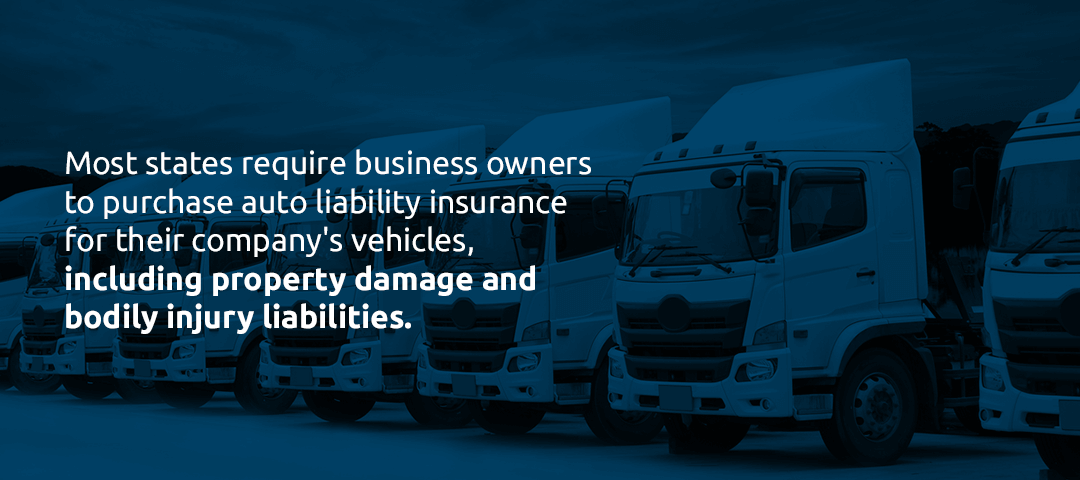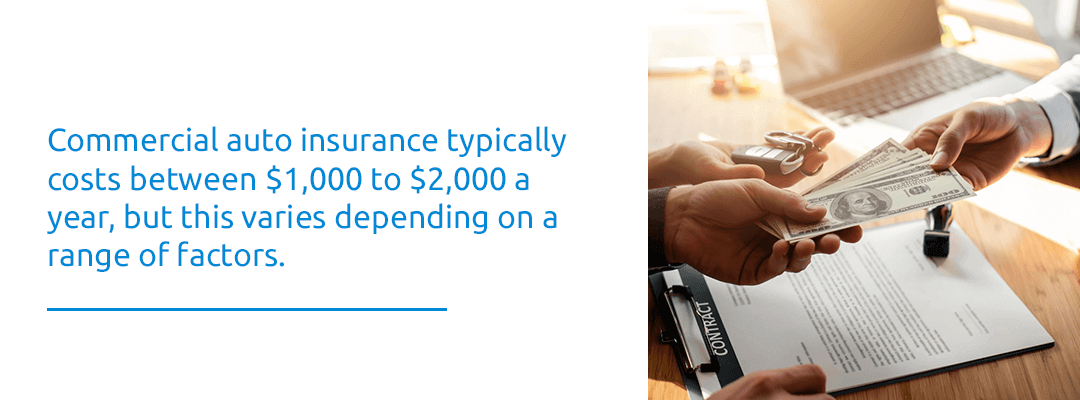
If you use your vehicle for business purposes, you may need commercial car insurance. Commercial auto insurance, sometimes referred to as truck driver insurance or commercial truck insurance, is required if you use your personal vehicle to transport people, goods or equipment for work. You generally need commercial insurance for any trucks, vans or cars your company owns, leases or hires and uses.
Be sure to choose the right insurance policy for your business to protect it against lawsuits and financial losses. If you need help adding new drivers to a commercial truck insurance plan or want to learn more about car insurance for your business, please reach out to us at David Pope Insurance.
Commercial insurance covers you and your employees when you drive your company’s vehicles. It protects you financially if you or your workers get in an accident and cause injury or property damage to another party, up to your policy’s limit. It functions like personal auto insurance, except it’s designed to protect you in unique situations you might encounter as a business owner. For example, if your business frequently transports tools, your policy may cover the cost of replacing the tools if they are stolen from your commercial vehicle. Commercial insurance also offers higher liability limits than personal auto insurance.
When shopping for a commercial car insurance policy, your insurance agent may show you a business auto coverage form (BACF). The BACF defines the different options available to you as a business owner, so you can make the right selection based on your company’s needs. Insurance companies may also offer endorsements that can be added to your commercial auto policy to enhance your coverage.
Most states require business owners to purchase auto liability insurance for their company’s vehicles, including property damage and bodily injury liabilities. Depending on your state, you may also need uninsured or underinsured motorist coverage and medical payments coverage or personal injury protection. In general, insurers recommend businesses have a minimum of $500,000 for liability coverage, but $1,000,000 is better — and it won’t add a significant amount to the premium. You may need even higher liability limits than the recommended amounts depending on factors such as the size of your vehicle and the type of materials you haul.

For example, according to the Iowa Department of Transportation, a vehicle with a gross vehicle weight rating of 10,000 pounds and transports non-hazardous products must have a minimum of $750,000 liability insurance. A vehicle carrying hazardous substances, on the other hand, requires $5,000,000 liability coverage. You can view Missouri’s motor carrier requirements in the Missouri Trucking Guide.
Your commercial auto insurance policy may include the following coverage depending on your needs and state requirements:
Although many options are available to help you create a tailored commercial auto policy, some things can’t be covered by your company’s vehicle insurance. You may need to purchase coverage outside of your commercial auto policy for the following:
As with any insurance policy, commercial auto insurance also will not cover “uninsurable risks.” An uninsurable risk is something that presents an unacceptable or unpredictable loss to an insurance company. This may include losses resulting from a war or pandemic, for example.
Commercial auto insurance costs more than personal car insurance because business owners are typically at risk for higher liability claims. Commercial auto insurance also usually covers multiple vehicles and offers higher liability limits. As mentioned, it’s recommended to have a liability limit of $1,000,000 to protect your business, whereas the maximum limit for personal auto insurance is usually $500,000.
Other factors such as the state of the reinsurance market, the prevalence of inexperienced drivers, higher medical costs, distracted driving and lower fuel costs impact commercial auto insurance premiums.
Even though commercial auto insurance comes with a higher price than personal auto insurance, there are still ways to lower your premium and boost your company’s bottom line. Here are a few tips:
The above tips can help you obtain lower rates, but overall, the best way to keep your commercial policy premium low is to ensure you and your employees drive safely to avoid accidents.
Commercial auto insurance typically costs between $1,000 to $2,000 a year, but this varies depending on a range of factors. It’ll likely cost more to insure a fleet of cargo vans in the city than a few small cars used in a small town, for example. To determine your commercial insurance policy cost, an agent will consider factors such as your business size, the number of vehicles you need to insure and the amount of coverage you need.

Commercial auto insurance rates have been on the rise, and the frequency of major losses is the main factor that influences the commercial auto insurance industry. Other factors that lead to losses for insurance companies and therefore increased premiums include the following:
Despite the rising cost of commercial auto insurance, you can save money on your premium. Contact us at David Pope Insurance, and we’ll help you quickly find an affordable commercial auto insurance policy for your business.